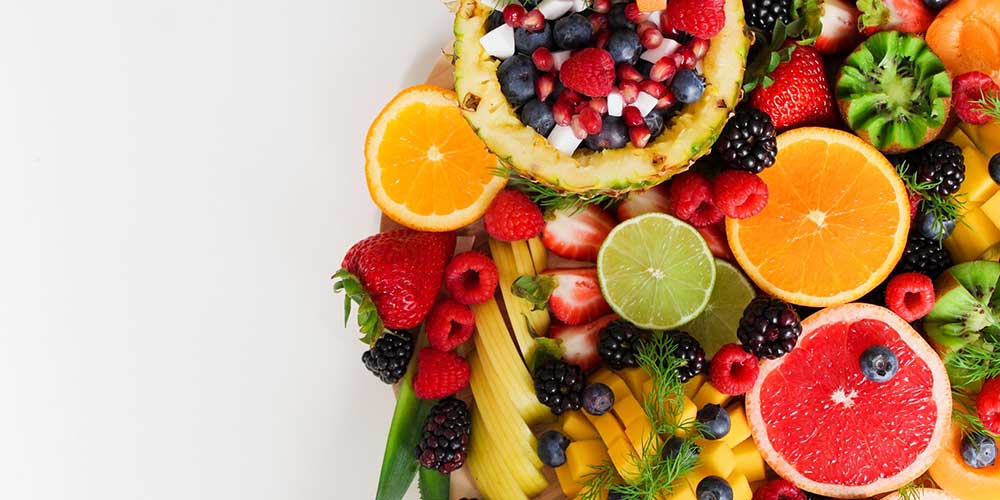Contents
Maths and science and quizzes, oh my!
Is your child preparing for exams? They have their books, they have a quiet space to work, they have a tutoring session scheduled, but do they have the right foods on their plate?
What kids eat matters. They need healthy foods to help them focus and remember information before exams. Let’s look at the top brain foods your child needs to eat every day. Brain food tips 🧠
Brain food tips 🧠
No matter what is on the menu, kids need breakfast every day. Eating regular meals and snacks keeps kids’ blood sugar stable, which helps them manage emotions and keep their mood even.
Make sure your child eats three meals a day, plus 2-3 healthy snacks. Their growing body and brain will thank you. 💪
Whole grains 🍚
The brain needs complex carbohydrates - things like rice and oats - in order to function well. Aim for whole grains as much as possible. You can cook a big pot of rice to eat during the week, and throw in some other brain foods on top.
Always read labels of items like bread and cereal. You want the first ingredient to be a whole grain. So “whole grain wheat flour” should be the first thing you see on your loaf of bread, for example.
When your child is preparing for an exam or working on difficult homework, try to avoid processed carbs like cookies and other snacks. That kind of carbohydrate can give them a short boost of energy, but then they will crash and be unable to focus.
Good fats 🥑
We hear a lot of bad things about fats, but they are necessary for our brains! But the type of fat is important. Your child needs “good fats” like Omega-3. You can find good fats in:
- Oily fish, like Salmon (if you don’t eat animals, don’t worry - there are plenty of plant-based options too)
- Seeds like hemp, pumpkin, flax, and chia
- Extra virgin olive oil
- Avocado
Why not try adding seeds to porridge, pancakes, yoghurt, and smoothies? They are a tasty and easy way to get those good fats.
Berries 🍓
Blueberries, raspberries, strawberries... any kind of berry! They contain gallic acid, which helps the brain stay sharp. Blend some into a smoothie, throw them on your yoghurt, or just eat them plain as a snack.
Leafy greens & cruciferous vegetables 🥦
Leafy greens like spinach and kale are loaded with Vitamin K, which builds neural pathways in the brain.
Likewise, cruciferous vegetables are great for brain health! Broccoli tops the list because it has antioxidants and vitamins that help keep your brain healthy, but there’s also brussels sprouts, cauliflower, cabbage and more!
These foods have a strong, sometimes bitter taste that kids don’t always like. But they can and should learn to like them! Start by serving just one bite of broccoli, for example. And take away the pressure that they must eat it - even just having it on their plate will give them some exposure, and over time they might surprise you by trying it!
You can also add leafy greens like spinach to a smoothie. 🥤 Mixed with your kid’s favorite fruit (and those berries!), the taste of spinach will be hardly noticeable.
Dark chocolate
We can’t forget a treat here and there! Dark chocolate has antioxidants that are great for brain power and memory. Try serving a small piece alongside lunch or snack. Try to stick to dark chocolate, not the milk chocolate, as the milk varieties dilute the benefits and contain added sugar. This can also apply to typical party foods that you might prepare - kids often won't even notice the switch if you change milk chocolate for dark gradually.
Keep away from…
❌ Trans fat and saturated fat (found in meat, dairy, and processed foods)
❌ Added sugars (the sugar in whole fruit is great though!)
❌ Too much sodium (from packaged foods or take away meals)
These items can make students feel sluggish and foggy, so try to avoid them, especially right before an exam.
🚀 After your child has eaten their fill, it’s time to get down to studying! A GoStudent tutor can help with any subject they need to practice, even on short notice. Is the exam soon? No problem! Schedule a trail lesson now!







